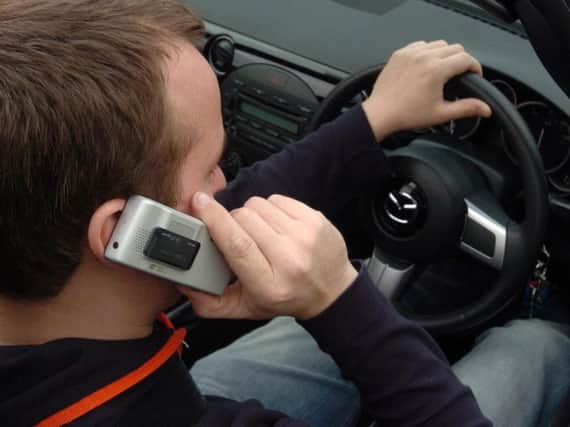Police want tougher mobile phone restrictions in bid to crack county lines drug gangs


Drug dealing telecommunications restriction orders were introduced to help prevent mobile phones and numbers being used for drug dealing, but a police watchdog has found little support for their use, principally because dealers obtain replacement handsets and numbers quickly and anonymously.
In one instance, officers told inspectors a drug gang received and shared a new phone number within an hour of the service provider acting on an order.
Advertisement
Hide AdAdvertisement
Hide AdRecommendations have now been made to the Home Office suggesting people should have to register their personal details when buying a mobile phone or replacement sim card.


Current analysis suggests that there are more than 2,000 individual ‘deal line’ numbers in the UK, linked to approximately 1,000 county lines gangs. London, Birmingham and Liverpool are the main exporting areas.
Harrogate has also been revealed as a key area in Yorkshire for county line drug dealing.
North Yorkshire Police have identified 20 unique deal like telephone numbers linked to 14 different gangs,which target places best connected by rail and road links.
Advertisement
Hide AdAdvertisement
Hide AdDetectives have linked 102 people to county line offending and said violence tended to appear where rival gangs vie for control of an area, or where local dealers try to profit from rival gangs.
Repercussions have included kidnap and hammer or machete attacks.
The latest information has come to light in an inspection by Her Majesty's Inspectorate of Constabulary and Fire and Rescue Services (HMICFRS) investigating how county lines drug trafficking is dealt with at local, regional and national levels.
Inspector Phil Gormley said: "The present arrangements that enable criminality by allowing the anonymous acquisition of phones and numbers, should be re-examined. In the interim, the National Crime Agency’s proposal for a dedicated team to co-ordinate the use of drug dealing telecommunications restriction orders should be implemented."
Advertisement
Hide AdAdvertisement
Hide AdResponding to the report, the National Police Chiefs' Council lead for county lines, Deputy Assistant Commissioner Graham McNulty said the National County Lines Co-ordination Centre is reviewing the use of orders that can disable a dealer's phone.
He said: “Police are committed to dismantling violent county lines networks and protecting the young and vulnerable people who are exploited by them but we can’t do it alone. Schools, health and social care services, charities and others have a critical role in ending this evil practice and we will continue to work closely with them.”
The term county lines is used to describe gangs and organised criminal groups distributing drugs from typically larger cities to smaller towns around the country using mobile phones to arrange deals with suppliers and buyers.
The gangs typically coerce children and vulnerable adults to move and store the drugs and money.
Advertisement
Hide AdAdvertisement
Hide AdThe inspection, which looked at the 43 police force's across the country and the National Crime Agency found their understanding of county lines had improved, but current policing models are too disjointed to allow for the most effective response.
The report also noted concerns regarding organised crime mapping and competing priorities among forces.
Inspector Gormley said: “County lines offending is a pressing issue for law enforcement in the UK. It is a cross-border phenomenon involving criminals working across regions, to deal drugs and exploit vulnerable people.
“To tackle cross-border crime, there needs to be a cross-border response. Our inspection revealed that policing is currently too fragmented to best tackle county lines offending. Although we did see many excellent examples of collaboration, we concluded that the current approach does not allow for the level of coherence needed.
“Our report therefore contains a list of recommendations designed to facilitate the creation of a national, co-ordinated response to county lines offences.”
